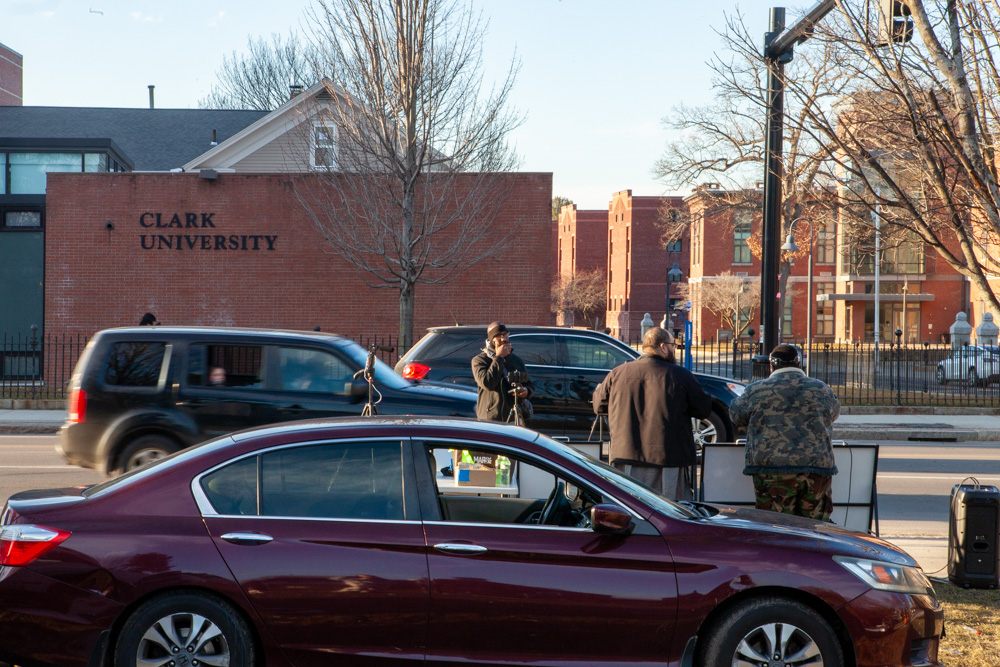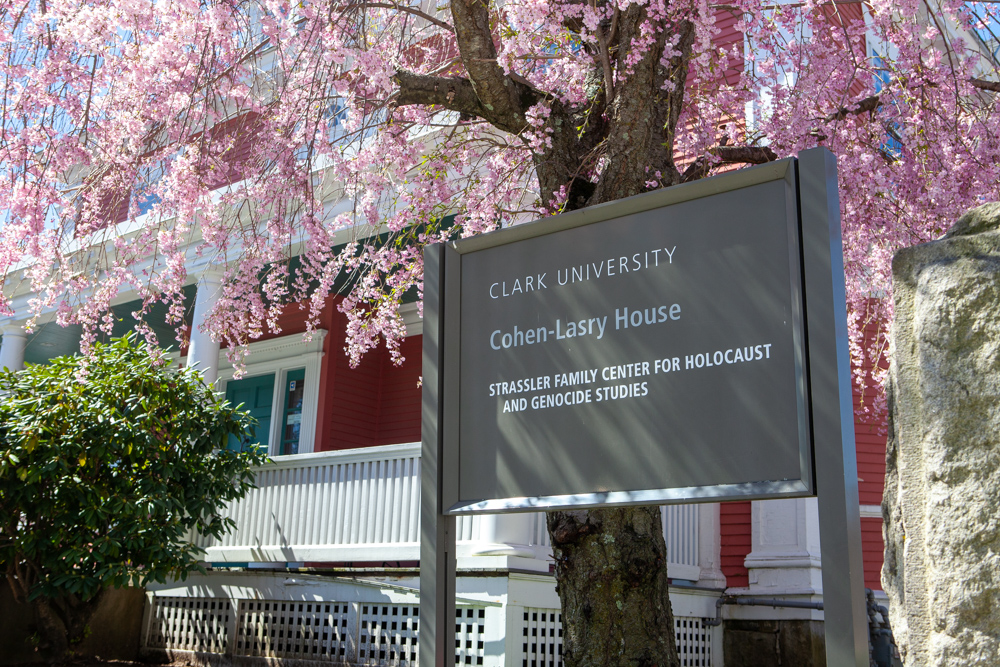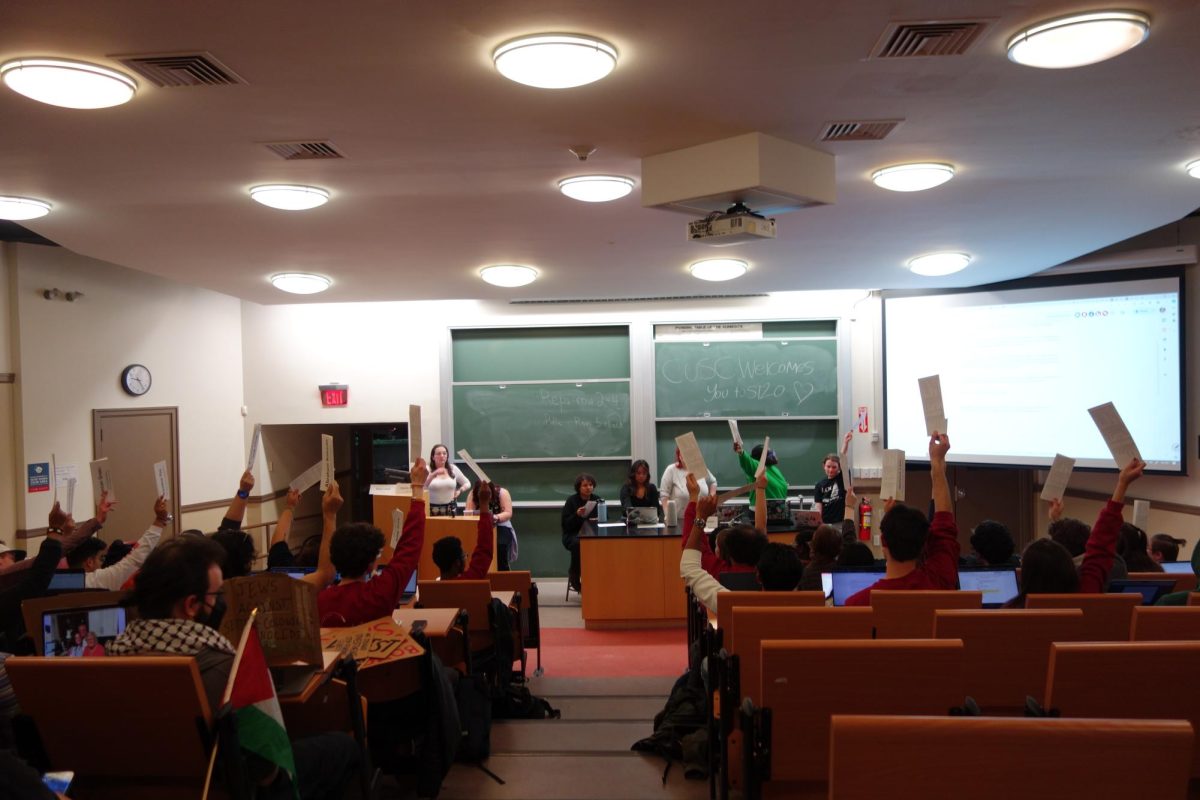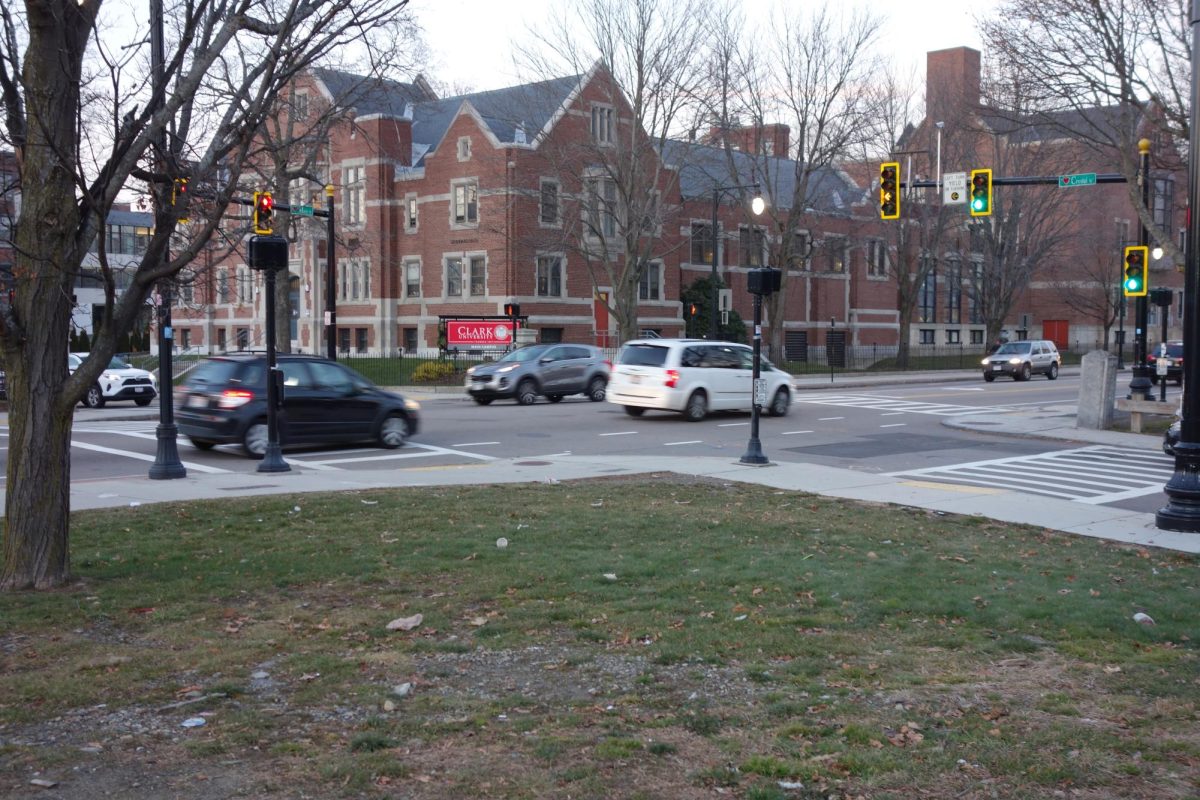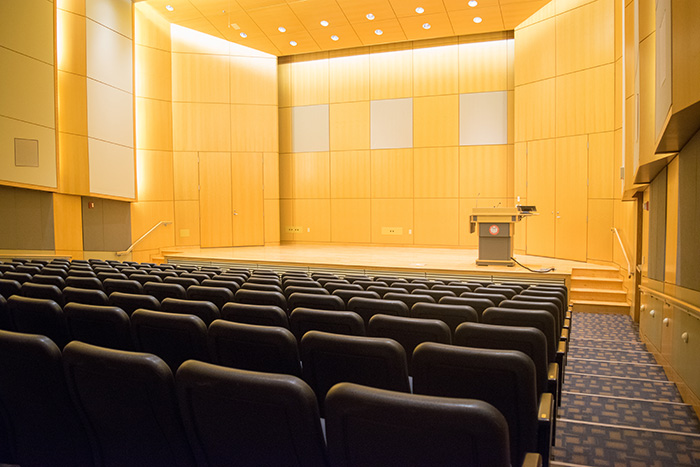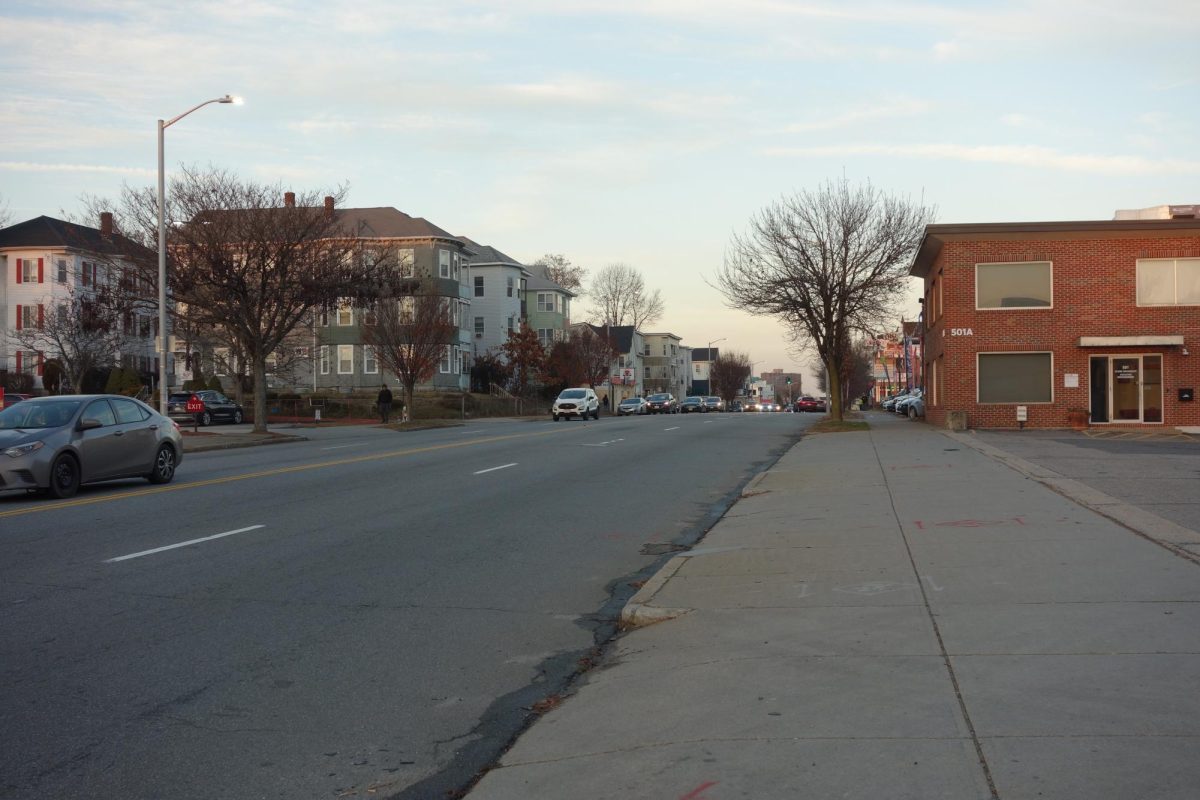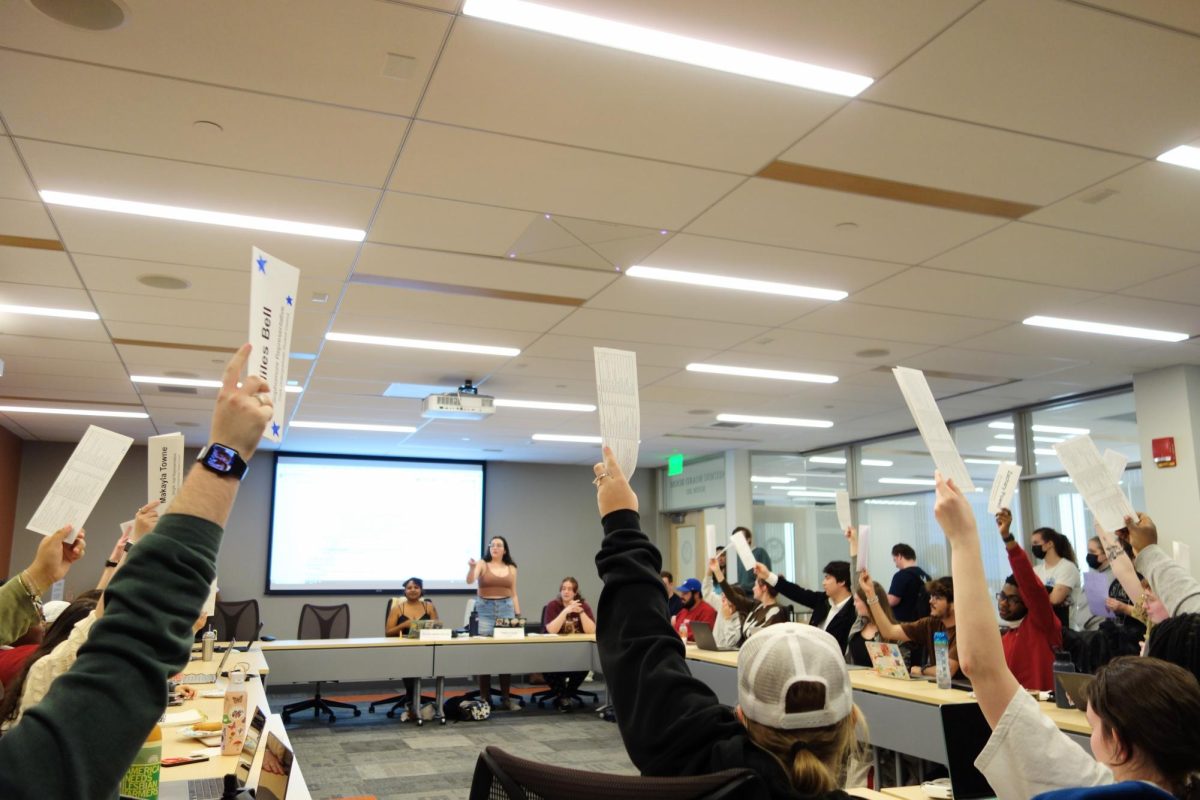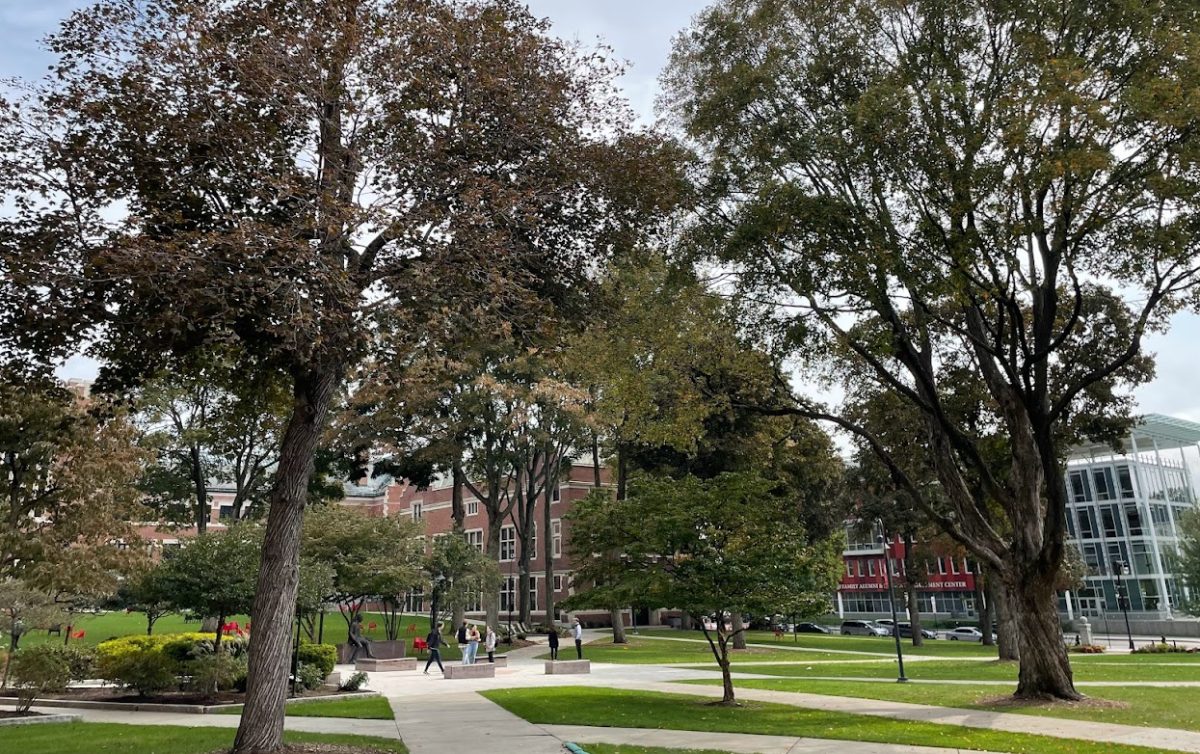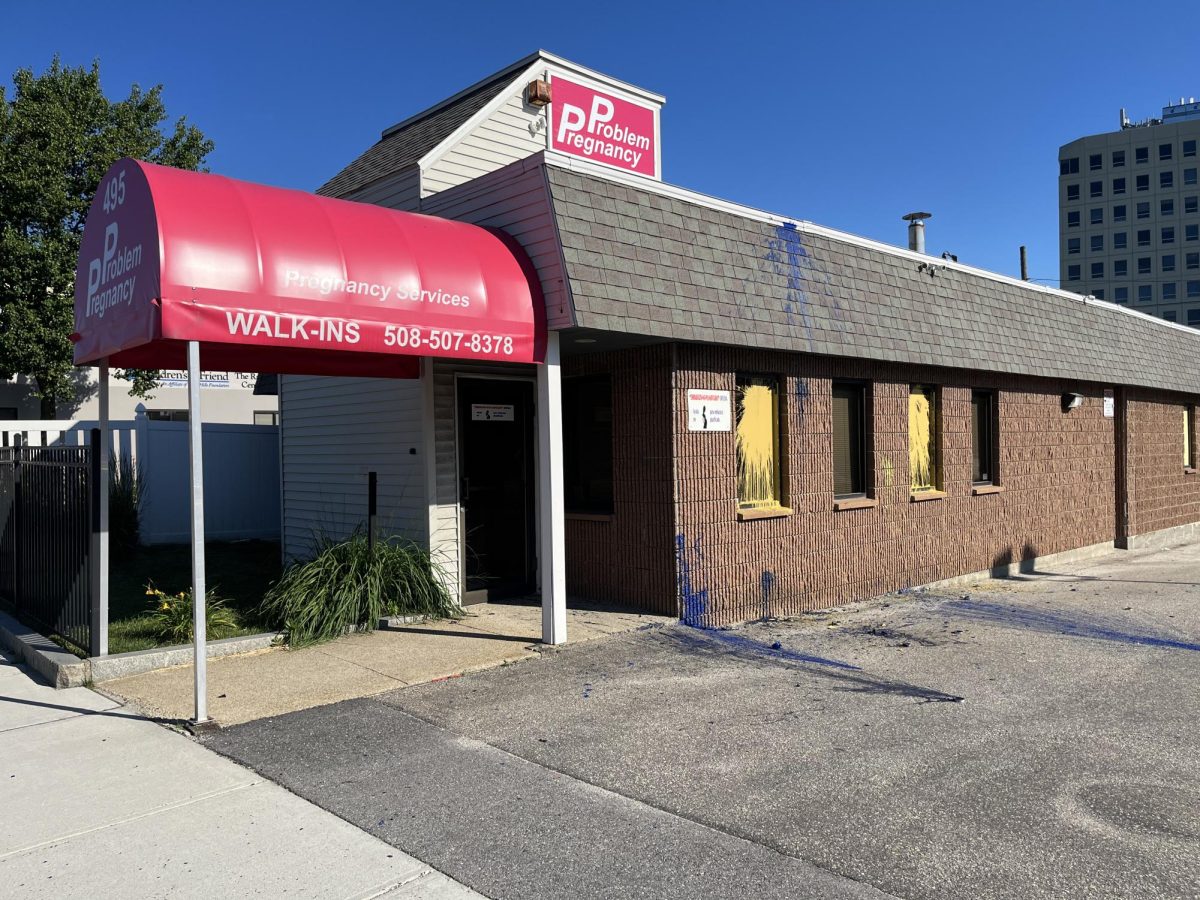Joe Corazzini has a vision for Clark University’s relationship with its Main South neighborhood: to see the University proactively support local business and step up its street presence. Corazzini believes that building a new 5,000-square foot “economic empowerment center” on the corner of Main and Crystal Streets with federal dollars could help do just that.
971 Main Street, the lot in question, is currently vacant and dilapidated. It is adjacent to a 7/11 convenience store, and sits just across the street from Clark’s campus and University Park. Clark has owned the property since 1999, according to city records.
Corazzini, the University’s Vice President for Government and Community Affairs, was hired in 2021. A Worcester local, Corazzini has over a decade of experience in community organizing and education. In an interview with The Scarlet, Corazzini explained that he serves as a liaison between the university and its local and governmental partners.
That includes state legislators, like Worcester’s Rep. David LaBeouf. Corazzini’s interest in the land partly originated with LaBeouf, who told him that neighbors have long been concerned by “issues having to do with drugs, prostitution, stuff like that,” taking place there. “That site’s been an issue for years,” said Corazzini.
He also communicates regularly with the Massachusetts congressional delegation, and says he tries to visit Washington “at least once a month” to advocate for the University. It was a discussion with Congressman Jim McGovern and his staff that helped Corazzini piece together the idea for developing the site.
The conversation introduced Corazzini to Community Project Funding (what used to be called “earmarking”). These are annual grants targeted at a congressperson’s home district. Corazzini saw it as a perfect opportunity, because for each grant to be approved, its sponsor must show that it can “add real value to the community.” Corazzini saw a chance to combine Clark’s programs for community engagement and workforce development under one roof.
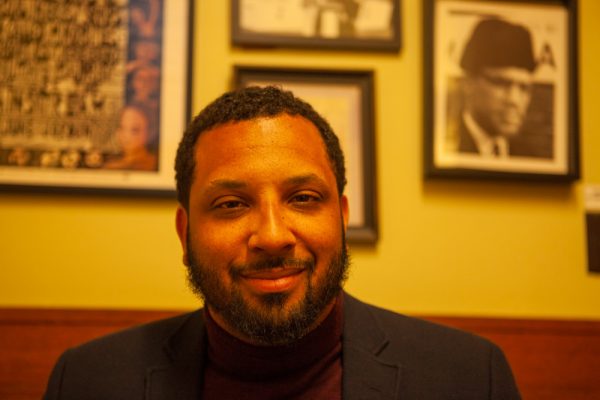
Existing programs, new facility
A proposal eventually made its way through the halls of Congress, thanks to the sponsorship of Rep. Jim McGovern. Among the fifteen items submitted by McGovern – each representative may put forward fifteen funding requests annually – was $2.6 million for an “Innovation & Entrepreneurship Community Engagement Center at Clark University.”
Corazzini said he worked with others in senior leadership at Clark, as well as McGovern’s staff, to get the proposal written. The cost is the result of a ballpark estimate worked out by Clark’s David Chearo, Vice President for Planning and Chief of Staff, and Associate Provost and Dean of Research Yuko Aoyama.
The proposal suggests that the new building, intended to “serve as an incubator for local businesses,” would have room for “a seminar room as well as consulting and maker spaces.” The new center would become a home base for several Clark initiatives, including an IT apprenticeship program, Liberal Arts for Returning Citizens (LARC), and the School of Management’s Small Business Development Center (SBDC) and Innovation & Entrepreneurship program. There is no official design for the building yet.
Clark “tries to do more than most universities, everything they possibly can, to be good neighbors,” said Dr. David Jordan in an interview with The Scarlet. Jordan, who was promoted from an interim status just last week to officially become Dean of the School of Management (SOM), spent most of his lengthy career as CEO of Worcester’s Seven Hills Foundation. Jordan said he sees real potential for Corazzini’s proposal to build on the university’s relationship with its neighbors.
Teresa Quinn, who heads up the Entrepreneurship and Innovation programs at SOM, thinks a new facility could offer useful opportunities for students, too. “I think we would be a great partner with all those other small businesses,” she said. Quinn imagines students working side-by-side with local business owners, applying knowledge from the classroom and learning from real-world expertise. “The combination of the two,” she said, would help Clark be “a good neighbor.”
Jordan said that kind of experience is invaluable to the School’s curriculum. “Just as chemistry students or physics students need labs to practice,” said Jordan, business students need “experiential labs.” He believes it also fits well with the School’s identity as “a niche player” for students interested in seeing “business as a force for good.”
If Clark’s business students were only interested in return on investment, Jordan said, they would have gone to another school. “People come to Clark for something more than just that,” he said. “We have to inform our students that there’s much more than only making money.”
According to Quinn, many students involved in entrepreneurship ask, “What can I do with the money that I’m making, or the product I’m selling, for good?”
To SOM leadership, then, student interest is strong and growing in working with local businesses. It’s even more important to think about it now, they argued, as one of the School’s dedicated “labs” – the Clark Community Thrift Store – will be forced to move, along with other local businesses, when the University demolishes the block it owns on Main Street to replace it with a new commercial and residential building.
Jordan suggested that Corazzini’s initiative for a new facility was partly a response to that demolition, planned for early this summer, and community concerns regarding gentrification. Corazzini denies this, noting that he had already directly negotiated with each tenant.
Meeting people where they are
“People in this community are not looking for a handout,” said Corazzini. “They’re looking for opportunity.” Growing up in Worcester, he said, helps him to appreciate that locals want to own their own businesses and homes. With his background in organizing, Corazzini sees a real need for strategic investment in Main South’s people.
He thinks that a new building on Main Street could combine existing programming to create high-reward opportunities for locals, giving them the skills they need to connect to living-wage jobs. Worcester County needs “an entity that can go deeper,” too, argued Corazzini, offering regional support to nearby towns. Corazzini believes Clark can be that entity.
Corazzini imagines programming in the new building that would be responsive to community needs and “meet people where they’re at.” He sees synergies with another initiative of his, a Main Street Business Development Fund, which would provide small grants to community members to “invest holistically” in the neighborhood. Through the system, Corazzini sees a future in which students would be paid to consult and work with community business leaders to do everything from designing new menus to learning to use accounting software. He linked it to other collaborations with nonprofits, like those offered through Clark’s Office of Community Engagement and Volunteering.
Stalled funding
As it stands, following through on the proposal for a new building is entirely contingent on securing federal funding. “Building a building there right now… we just don’t have the money to do it,” said Corazzini.
In a typical year, Community Project Funding grants would have already been awarded. But deadlock in Congress has prevented new grants from moving forward as negotiators continue to put off a vote on new legislation to fund the government in 2024. Corazzini recognized that Clark’s proposal was just one among many being held up, but said “it would be terrible to see no funding come through, or a small amount of funding.”
That kind of result would force university leaders to consider other funding opportunities, or potentially reapply for a new grant. Currently, administrators have no plans to fundraise for the proposed building.
Corazzini said he won’t shelve the project. “I plan to advocate and push it,” he said. “Hopefully, I can say I was really proud to be part of a team that helped develop an economic empowerment center for the community,” he said. “I’m still holding out the hope that rational hearts and minds prevail.”


